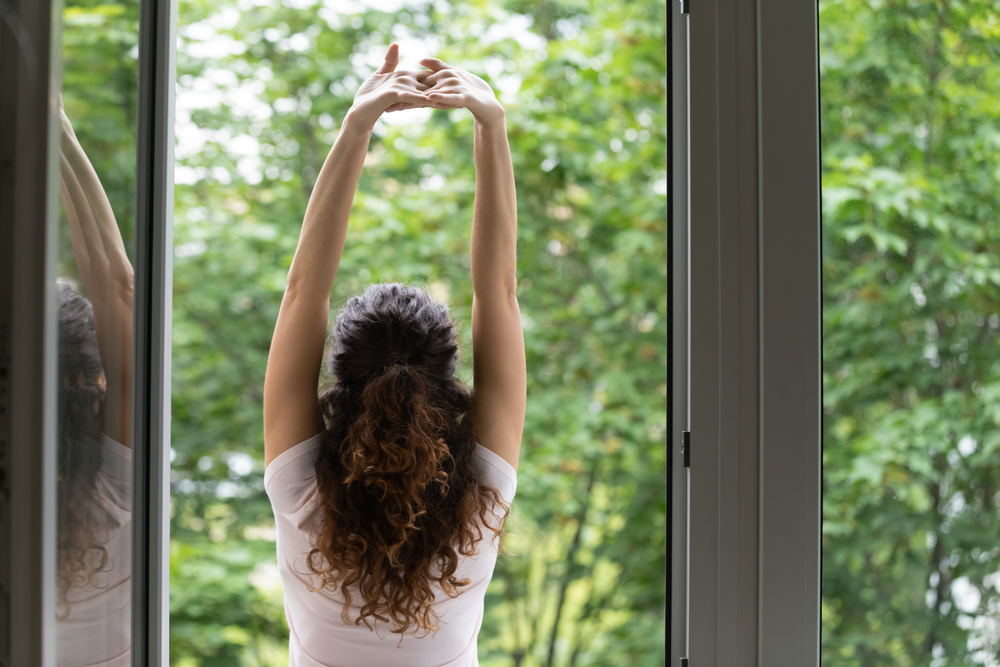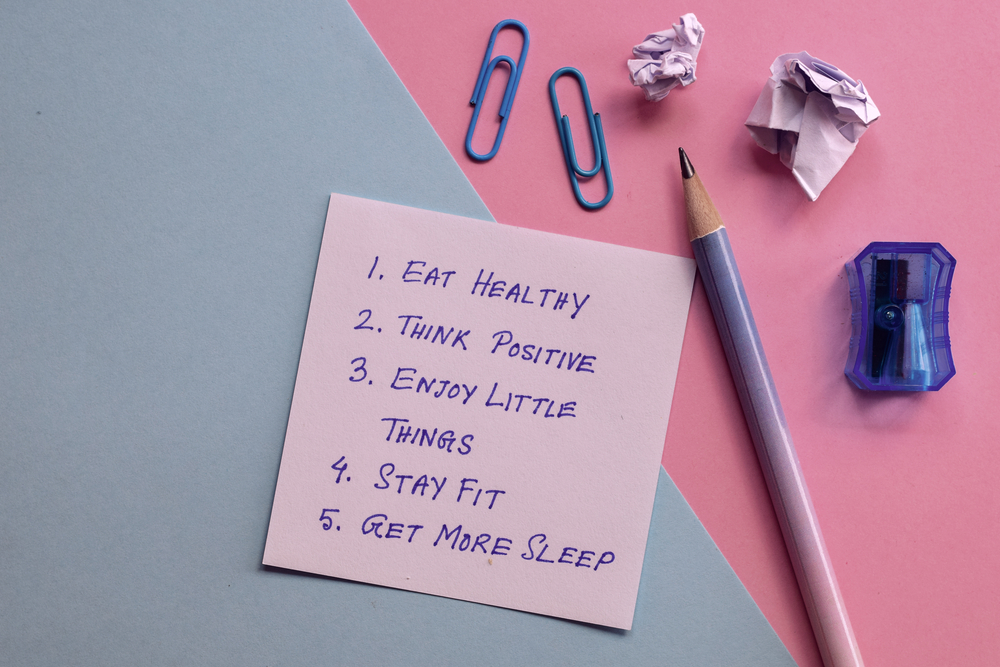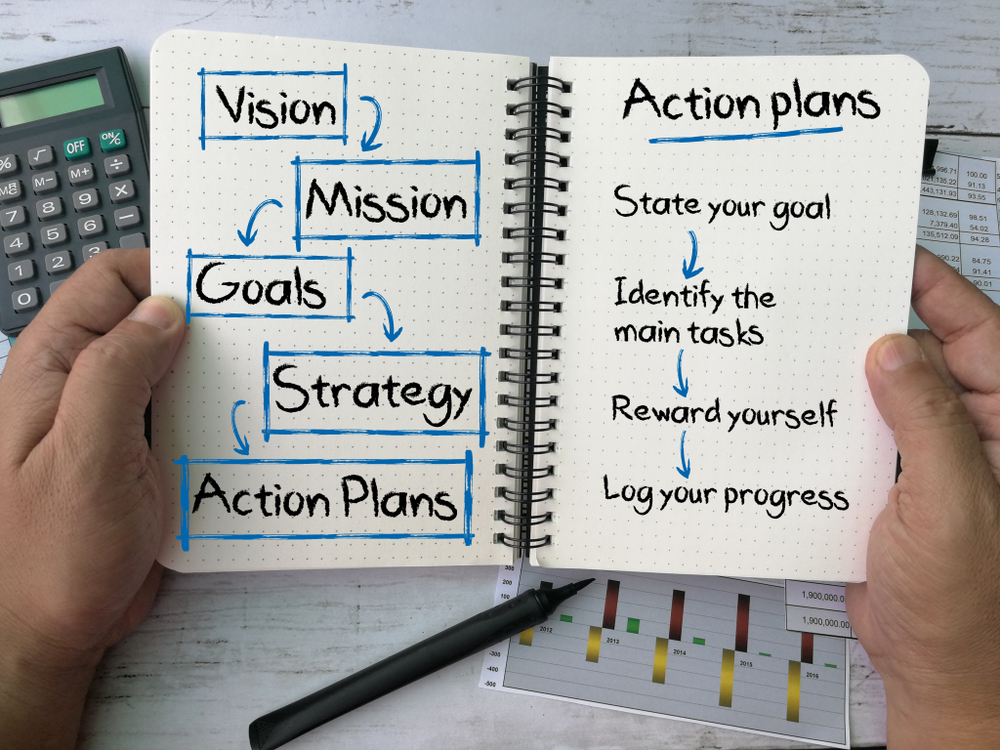How To Start a New Routine—and Stick to It
Starting a new routine can be a daunting thought. Not only can it take a while, but outside pressures often make it even more challenging to follow through.
Whether you want to start a new exercise routine, read more books, or incorporate a new skincare routine, this guide will help point you in the right direction.

Why are routines difficult to start?
Routines are challenging to start because they involve habits—not just starting new ones, but breaking old ones, too.
Forming Habits
Once you get used to not doing something, it becomes difficult to start actually doing it. Exercise is a perfect example of a routine that requires breaking a lot of old habits in order to begin.
Why Forming New Habits is Important
According to market data reports, approximately 40% of your daily actions are powered by habits rather than conscious decisions.
Breaking Old Habits
Old habits you’ll want to quit will be the ones that make reaching your goal harder.
For example, if you want to be physically healthier, old habits to break could include: taking the elevator instead of the stairs, snacking before bed, drinking soda with dinner, etc.
Cut the old habits that work against your goal.
Expanding Your Comfort Zone
Starting a new routine can sometimes have you expanding your comfort zone a little.
Maybe you’re an introvert who would like to start going for a walk every day—but this might mean you have to be social with neighbors.
One Leads to Another
As daunting as that can be, remind yourself that one good habit often leads to another, and having a social life could be a good thing too.
How long do habits take to form?
There are some beliefs that it takes 21 days, but new studies have shown that it can take anywhere from 18-254 days to form a new habit. However, this greatly depends on the habit itself.
Habit Attempts
In addition to length of time, forming habits can also take multiple attempts.
GitNux believes that, “people who successfully change a habit do so on an average of their sixth attempt.”
Habit Forming Failure Rates
As previously mentioned, there are many failed attempts at starting a new habit before one actually sticks. In fact, the failure rate of changing a daily habit is as high as 88%, according to GitNux.
The Power of Mornings
Starting a new routine can be beneficial if you aim to include it at the start of your day. According to LinkedIn, 92% of highly successful people have a solid morning routine.
How Routines Help Achieve Goals
According to GitNux, “people who make very specific plans to reach their goals are 2 to 3 times more likely to succeed, indicating the impact of the habit-forming process.”
Now, let’s get specific. Here are 18 ways to help you stick to your new routine.
1. Make it Personal
Creating a new routine simply because you feel the pressure to follow others, or to show off on social media is a surefire way to fail. Starting a new routine is challenging enough without doing it to please others.
Example
Your goal should be for you, and only you. Get yourself a journal and write down your personal goals for yourself to reference to as you go.
2. Set a Realistic Timeline
Don’t expect to pick up a new routine in a matter of days, or even weeks. Routines require consistency, which takes time to master.
 Fernando Avendano, Shutterstock
Fernando Avendano, Shutterstock
Example
If you want to start exercising regularly, start slow and set a realistic goal that you can work up to. Start with 1-2 workouts per week and increase from there if you can.
3. Create a Feelings Goal
The best way to be successful at a new routine is to identify the emotional feeling that motivates it. Write it down so you can refer back to it when you feel it.
Example
For example, a feelings goal associated with reading more books could be to quiet your mind and feel more peaceful before bed.
Feelings goals often helps people stay more motivated to the end result.
4. Write Down Your Goals
Routines help you get to your end goal. Start by writing down the end goal, and then how you will get to it.
Example
If your goal is to have clearer skin, your routine will likely include a new skincare regime. Write down the steps of the skincare routine, including when you’ll do it, how you’ll do it, and what is needed to do it.
5. Use Your Free Time
Another helpful way to stay consistent is to find ways to fit your new routine into already open slots of your schedule.
Example
If your goal is to spend more time with your friend, but you don’t care for going out on a Friday night, find a different time in your schedule that would work. Maybe an after-dinner walk on Wednesdays, or a Sunday morning breakfast date.
6. Put It in Your Schedule
Your new habits need a set time in your schedule if you want to keep consistent with them. Decide which days you plan to make it work and write it down.
 Svitlana Denysiuk, Shutterstock
Svitlana Denysiuk, Shutterstock
Example
Whether your habit it is to go for an evening walk, or wash your face each morning—simply write it in your calendar, “wash face”.
7. Be Detailed
Getting specific about the time you’d like to incorporate your new habits can be a detail that helps maintain consistency.
 Kaspars Grinvalds, Shutterstock
Kaspars Grinvalds, Shutterstock
Example
For example, if your goal is to get healthy and your new supporting habit is to exercise, scheduling it in your daily calendar for 7:00AM will allow you to focus only on that at that time.
8. Be Flexible
The worst thing about routines is the pressure to uphold them. Be flexible if things have to change one day.
 Bagus Production, Shutterstock
Bagus Production, Shutterstock
Example
Maybe you get sick, or take an unexpected trip, which puts a dent in your new routine. Don’t stress about missing the gym, or leaving your book at home.
As soon as your routine becomes inconvenient you will fail.
9. Test & Tweak
Don’t think your routine has to be carved in stone. Always allow yourself to tweak your habits if they don’t seem to be working.
Example
As yourself, how does your new routine feel? Did you schedule your tasks at times that make sense?
If you don’t love the outcome, make some changes that will work better.
10. Structure Your Day According to Your Needs
If you want to start reading more books but find yourself exhausted at bedtime, then pick a different time of day to read.
Example
Maybe you can fit in a few chapters on your lunch break, or maybe you can squeeze in some time to read in the morning before work.
It’s okay to change it up. This avoids not doing it at all.
11. Be Flexible About Your Approach
Although a routine is something that is typically the same every time, it is important to remember that the habits are what matter most.
 Cast Of Thousands, Shutterstock
Cast Of Thousands, Shutterstock
Example
If your goal is be physically healthier, and your new habits include exercising, remind yourself that exercise doesn’t only happen in the gym.
Being active outside, or going dancing with friends can also be habits that will work toward your goal.
12. Lean On Your People
New routines require consistency, which is the hardest part. Similar to how you get up and go to work because you’re expected to be there, having someone else rooting for you can help keep you motivated to continue.
Example
Telling a friend about your new routine and giving them permission to check in once in a while can make a world of difference when it comes to staying accountable.
13. Celebrate the Small Stuff
Discipline doesn’t mean punishing yourself when you slip up. Let go of the pressure and celebrate the wins, no matter how small.
Example
Use a journal to write out your wins, especially the good ones. For example, “Read four chapters today”, or “went for a two-hour hike,” will remind yourself of the progress you’re making when you feel discouraged.
14. Reward Yourself
Don’t forget to reward yourself when you follow through with your routine and start meeting your goals.
Example
This can include buying yourself something special, allowing yourself extra free-time, or even just picking up a specialty coffee.
Recognizing your own hard work will motivate you to keep going.
 Kryvenok Anastasiia, Shutterstock
Kryvenok Anastasiia, Shutterstock
15. Be Gentle With Yourself
Remind yourself that habits and routines take a fairly long time to stick—and you’re human. Not everyone will succeed the first time they try, in fact, most don’t.
Example
Allow yourself to lose sometimes and not feel badly about it. Try verbally reminding yourself that “it’s okay to take a break,” whether you meant to or not.
 Krakenimages.com, Shutterstock
Krakenimages.com, Shutterstock
16. Find Motivation
Finding others that have a similar goal to you will certainly help keep you motivated.
Example
Follow like-minded people on social media, or join online groups where people share their progress.
Even if you don’t share your own progress, reading or seeing others crushing their goals will motivate you to do the same.
17. Use Visual Reminders
Sometimes, being consistent with a completely new routine can be difficult—especially if you’re busy or forgetful.
Example
Leaving yourself little notes on the whiteboard, or sticky notes on your desk—like “drink your water” can be helpful.
18. Splurge for Support
Don’t feel bad about splurging on things that can help support your goal. There are no rules to setting yourself up for success.
 Bagus Production, Shutterstock
Bagus Production, Shutterstock
Example
If buying yourself a new pair of yoga pants will motivate you to work out more, then do it. If adding lemons to your water helps you drink more of it, then go for it.
Final Thoughts
Starting a new routine is only challenging when you set unrealistic goals and put unnecessary pressure on yourself.
By setting a realistic goal, knowing which habits to start and which to break, and knowing when and how to be flexible, starting a new routine can be both successful and enjoyable.
Bonus Point
One last important point: if sticking with your routine is too stressful and you are not effective, allow yourself to say, “maybe this isn’t for me,” and try something else.
Routines should make our lives easier, not harder.
Source: 1
















































